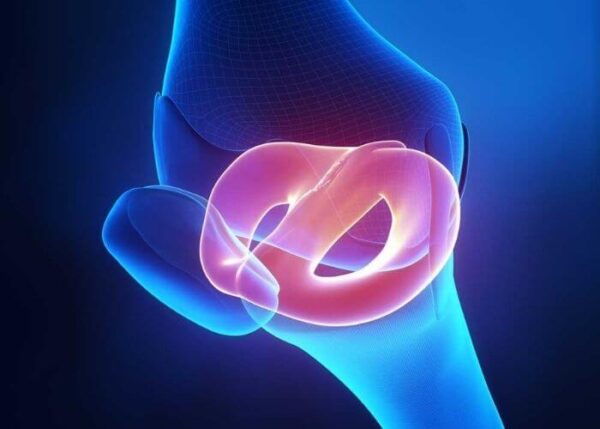What is a meniscus root tear?
Both the medial (inner) and lateral (outer) menisci have strong attachments to the bone, called “roots.” These root attachments are critical to the health and function of the meniscus and are responsible for holding the meniscus in place. Without the root attachments, the meniscus can extrude (squirt out of) the knee and would be unable to perform its function as a shock absorber. For decades the importance of the meniscal root in knee biomechanics has been under appreciated. Only in past few years has the impact of a root tear on knee health been understood. Despite this increased awareness, these injuries are often missed on MRI. The key to successful management of these injuries is meniscal preservation and repair. Unfortunately, if left untreated or if the meniscal tear is debrided (cleaned up) the underlying biomechanical picture is not improved, and arthritis can reliably result.
Dr. Armando Vidal, orthopedic knee specialist has extensive experience with meniscus root tears and meniscal preservation techniques and can help patients in Vail, Aspen and the surrounding Denver, Colorado communities who are experiencing a meniscal injury.

Is a meniscus root tear serious?
Yes!!! A meniscal root tear is considered a very serious condition. In fact, it is the biomechanical equivalent to having the entire meniscus removed. It can completely destabilize the shock absorbing function in the knee and can lead to fractures, early onset of arthritis and even osteonecrosis (bone death).
What is the difference between a torn meniscus and a meniscus root tear?
Most meniscal injuries or tears are actual “rips” in the substance of the meniscus. Typically, these occur in the more central part of the meniscus. These injuries can be repaired or debrided with less of a biomechanical impact.
A root tear is either a total detachment of the meniscus anchor from the bone or a radial split (complete transection) of the meniscus within a couple of millimeters of the root attachment. Unstable meniscal root tears cause the joint to carry more load than it is designed to, soaring as much as three times the normal load. Therefore, the biomechanical impact of a root tear is far greater and more significant than a typical meniscal tear.
Who is at risk for a meniscus root tear?
The risk profile for meniscal root tears is different between the medial and lateral side.
Medial meniscal root tears typically occur in patients between the ages of 40-60 and often occur with minimal or no trauma. They present with a minor “tweak” and then rapid escalation of medial sided pain and swelling over the ensuing days or weeks. Some patients are often so symptomatic that they come in on crutches!
Lateral meniscal root tears typically occur in combination with a ligamentous injury such as an ACL tear. These injuries sometimes are not as significant as a medial meniscal root tear because they can be stabilized by a menisco-femoral ligament. The prognosis for these injuries is typically more favorable than medial meniscal root tears.
What are the symptoms of a meniscus root tear?
The most common symptom of a meniscal root tear is knee pain. Other symptoms include:
- Pain, especially at the back and medial side of the knee
- Hearing or feeling a “pop” at the time of injury
- Some patients don’t feel pain until well after the injury has occurred
- Increased pain, causing a limp or the need for crutches
- A change in gait (often caused by long-standing root tears)
- Signs of early osteoarthritis
How are meniscal root tears diagnosed?
A thorough history, physical exam and advanced imaging (MRI) can diagnose the vast majority of meniscal tears. Meniscal tears at the periphery (meniscocapsular or ramp lesions and fascicle tears laterally) are notoriously difficult to diagnose and require experience for an accurate diagnosis. For patients in Vail, Aspen and the surrounding Denver Colorado communities, Dr. Vidal will discuss symptoms and examine the injured knee.
How is a meniscus root tear treated?
For information on a meniscus root repair, please click HERE.
Complex Knee Specialist
A meniscus root tear is a very serious injury in which the roots, or attachments, of the meniscus become damaged and tear. This causes the meniscus to become essentially non-functional. Complex knee specialist, Doctor Armando Vidal provides diagnosis and treatment for patients in Vail, Aspen, and the surrounding Denver, Colorado communities who have experienced this severe injury. Contact Dr. Vidal’s team today!

Locations
180 S Frontage Rd W
Vail, CO 81657
226 Lusher Court
Ste 101
Frisco, CO 80443
322 Beard Creek Road
Edwards, CO 81632


